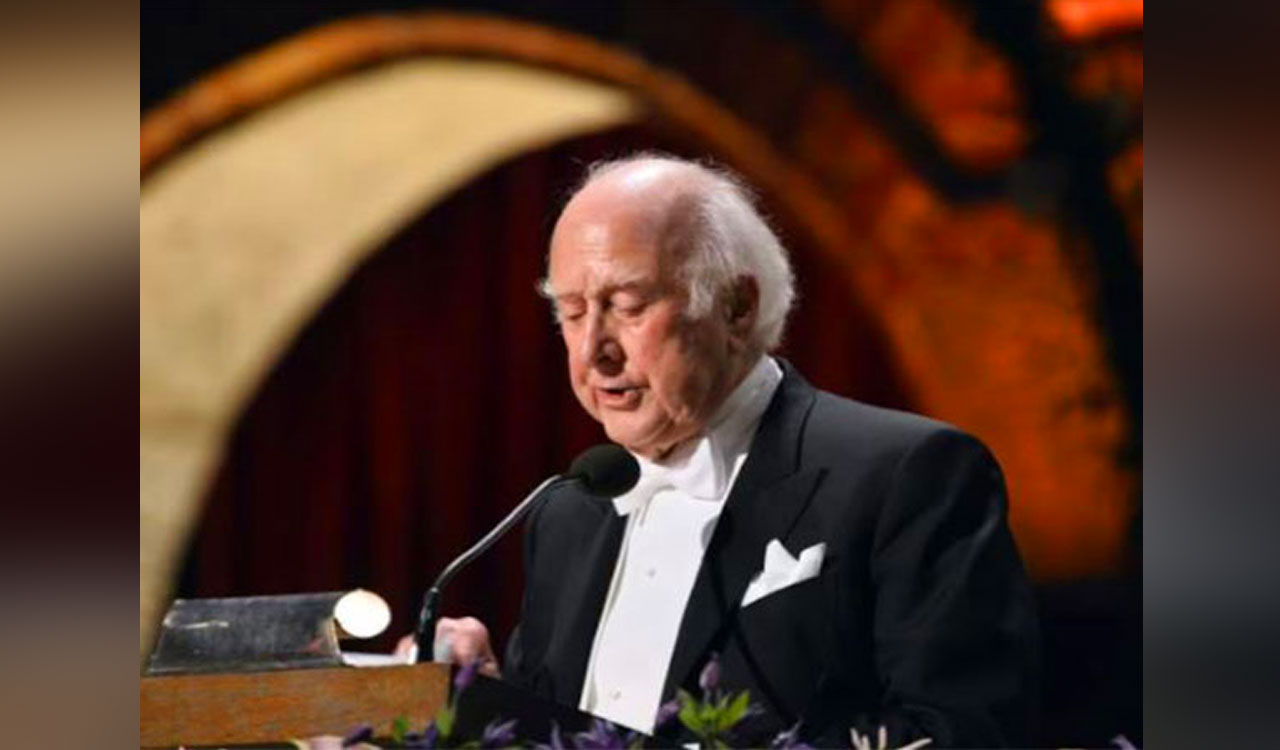His contemplation on the genesis of mass initiated a nearly five-decade, multibillion-dollar quest for a subatomic particle, eventually dubbed the ‘Higgs boson’, believed to unlock the mysteries of the universe’s essence.
Updated On – 10 April 2024, 09:24 AM

Washington, DC: Peter Higgs, a British physicist and Nobel Prize winner behind the ‘God’ particle, passed away at his home in Edinburgh, Scotland, at the age of 94, The Washington Post reported.
His reflections on the origins of mass sparked a nearly five-decade, multibillion dollar search for a subatomic particle, later known as the ‘Higgs boson’, which was thought to hold the key to understanding the nature of the universe.
In a statement, the University of Edinburgh announced his passing on April 8 but did not cite a cause.
His hypothesis required the presence of a particle that was undiscovered then. It was eventually dubbed the God Particle, a playful nod to its apparent significance in the creation explanation.
According to The Washington Post, five others published similar ideas at almost the same time, as it would require thousands more scientists, working in vast multinational collaborations, to eventually find the Higgs boson.
However, the groundbreaking idea became associated with the Higgs. He and one other theorist were the only recipients of the 2013 Nobel Prize in Physics.
Peter Ware Higgs was born in Newcastle upon Tyne, England on May 29, 1929. The family frequently moved because his father was a sound engineer for the British Broadcasting Corporation (BBC).
Higgs first believed he would become a chemist, but quickly realised he was “hopeless in the lab” and changed his career path to theoretical physics.
He landed in the University of Edinburgh following his three degrees from King’s College London, which included a PhD in physics in 1954.
He retired from the college in 1996.




